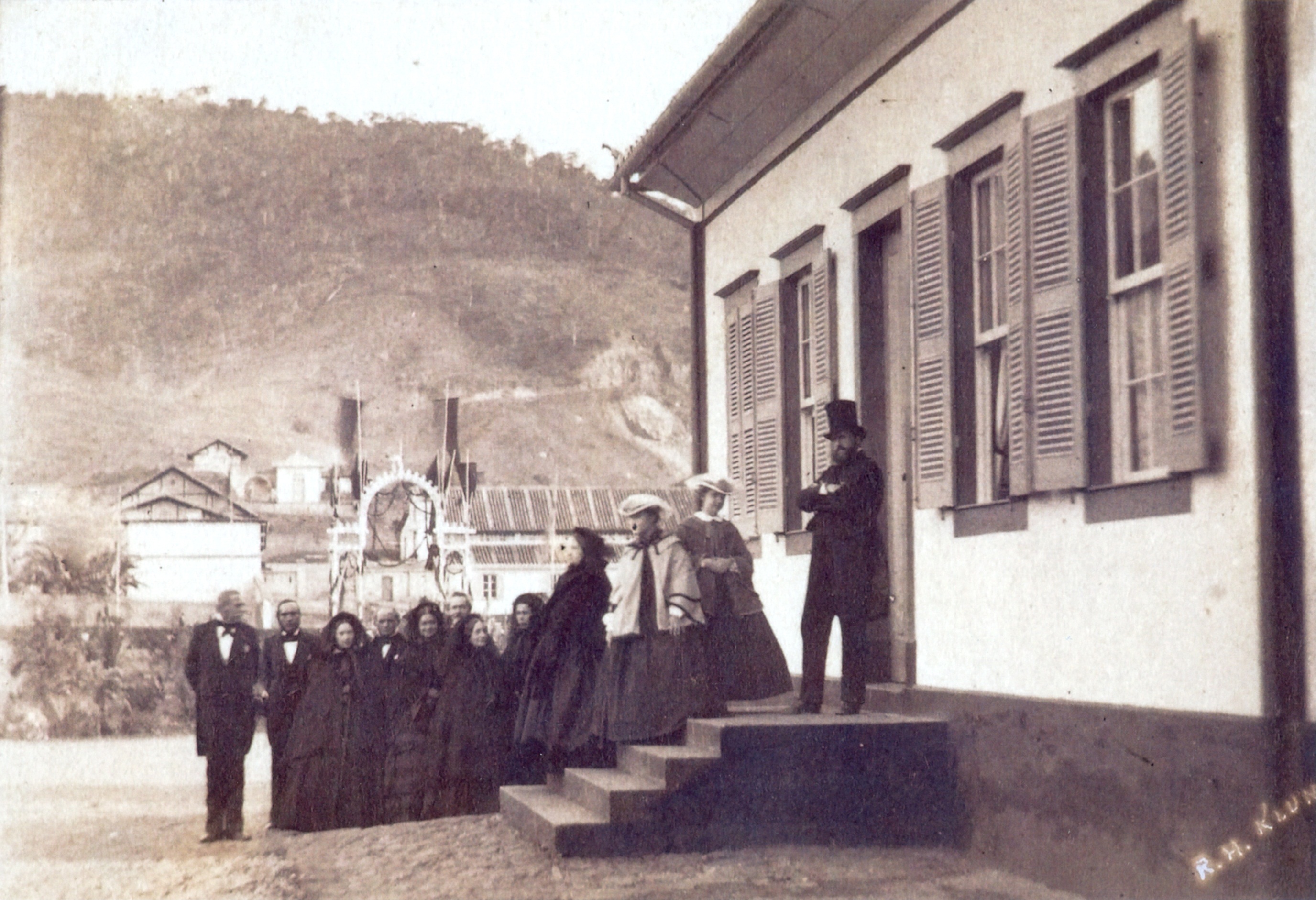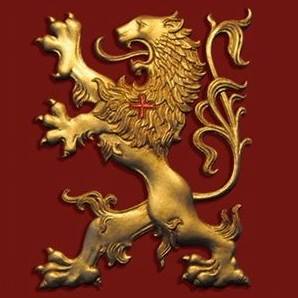|
Bertrand Of Orléans-Braganza
Bertrand of Orléans-Braganza (born ''Bertrand Maria José Pio Januário Miguel Gabriel Raphael Gonzaga de Orléans e Bragança''; 2 February 1941, in Mandelieu-la-Napoule, Vichy France) is the head of the Vassouras branch of the House of Orléans-Braganza and one of two claimants to the defunct Brazilian throne. He succeeded his brother Luiz of Orléans-Braganza to the claim on 15 July 2022. The Vassouras branch claims the throne in opposition to the Petrópolis branch of the Orléans-Braganzas, headed by Pedro Carlos Orléans-Braganza. Although Bertrand and Pedro Carlos respectively were and are great-grandchildren of Princess Isabel (daughter of Emperor D. Pedro II), of the House of Braganza, they disputed leadership over the Brazilian Imperial Family due to a dynastic dispute concerning their fathers, who were cousins. Biography Early life The third son of Pedro Henrique of Orléans-Braganza and Princess Maria Elisabeth of Bavaria, his elder brothers are, in order, Luiz o ... [...More Info...] [...Related Items...] OR: [Wikipedia] [Google] [Baidu] |
Brazilian Imperial Family
The Brazilian Imperial Family (Brazilian Portuguese: ''Família Imperial Brasileira'') is a Brazilian Dynasty of Portuguese origin that ruled the Empire of Brazil from 1822 in Brazil, 1822 to 1889 in Brazil, 1889, after the proclamation of independence by Pedro I of Brazil, Prince Pedro of Braganza who was later acclaimed as Pedro I, ''Constitutional Emperor and Perpetual Defender of Brazil''. The members of the family are Dynasty#Dynasts, dynastic descendants of Emperor Pedro I. Claimants to headship of the post-monarchic Brazilian Imperial legacy descend from Emperor Pedro II of Brazil, Pedro II, including the senior patrilineality, agnates of two branches of the House of Orléans-Braganza; the so-called ''Petrópolis'' and ''Vassouras'' lines. Prince Pedro Carlos of Orléans-Braganza (born 1945) heads the ''Petrópolis'' line, while the ''Vassouras'' branch is led by his second cousin, Bertrand of Orléans-Braganza.Les manuscrits du C.E.D.R.E. – Dictionnaire Historique et Gén ... [...More Info...] [...Related Items...] OR: [Wikipedia] [Google] [Baidu] |
Rio De Janeiro
Rio de Janeiro ( , , ; literally 'River of January'), or simply Rio, is the capital of the state of the same name, Brazil's third-most populous state, and the second-most populous city in Brazil, after São Paulo. Listed by the GaWC as a beta global city, Rio de Janeiro is the sixth-most populous city in the Americas. Part of the city has been designated as a World Heritage Site, named "Rio de Janeiro: Carioca Landscapes between the Mountain and the Sea", on 1 July 2012 as a Cultural Landscape. Founded in 1565 by the Portuguese, the city was initially the seat of the Captaincy of Rio de Janeiro, a domain of the Portuguese Empire. In 1763, it became the capital of the State of Brazil, a state of the Portuguese Empire. In 1808, when the Portuguese Royal Court moved to Brazil, Rio de Janeiro became the seat of the court of Queen Maria I of Portugal. She subsequently, under the leadership of her son the prince regent João VI of Portugal, raised Brazil to the dignity of a k ... [...More Info...] [...Related Items...] OR: [Wikipedia] [Google] [Baidu] |
House Of Ligne
The House of Ligne is one of the oldest Belgian noble families, dating back to the eleventh century.''Genealogisches Handbuch des Adels, Fürstliche Häuser'' XIV. "Ligne". C.A. Starke Verlag, 1991, pp. 495-500. . The family's name comes from the village of where it originated, between Ath and Tournai in what is now the Hainaut province of Belgium. History Their progressive rise in the nobility began as barons in the twelfth century, counts of Fauquemberg and princes of Épinoy in the sixteenth century, then princes of Amblise in 1608. The family became Imperial counts on 18 December 1544, then Lamoral I received from Emperor Rudolf II the title of Prince of the Holy Roman Empire as ''Prince de Ligne'' on 20 March 1601, for all of his agnatic descendants, both male and female. Compensation for loss of the Imperial County of Ligne (Fagnolles, since that barony had become seat of the county in 1789) as a result of the Peace of Lunéville consisted of substitution of the secular ... [...More Info...] [...Related Items...] OR: [Wikipedia] [Google] [Baidu] |
Belgium
Belgium, ; french: Belgique ; german: Belgien officially the Kingdom of Belgium, is a country in Northwestern Europe. The country is bordered by the Netherlands to the north, Germany to the east, Luxembourg to the southeast, France to the southwest, and the North Sea to the northwest. It covers an area of and has a population of more than 11.5 million, making it the 22nd most densely populated country in the world and the 6th most densely populated country in Europe, with a density of . Belgium is part of an area known as the Low Countries, historically a somewhat larger region than the Benelux group of states, as it also included parts of northern France. The capital and largest city is Brussels; other major cities are Antwerp, Ghent, Charleroi, Liège, Bruges, Namur, and Leuven. Belgium is a sovereign state and a federal constitutional monarchy with a parliamentary system. Its institutional organization is complex and is structured on both regional ... [...More Info...] [...Related Items...] OR: [Wikipedia] [Google] [Baidu] |
Plinio Corrêa De Oliveira Institute
The Plinio Corrêa de Oliveira Institute (IPCO) ( pt, Instituto Plinio Corrêa de Oliveira) is a Roman Catholic traditionalist association of private law, which claims direct legacy of the Brazilian Tradition, Family and Property (TFP), and follows the beliefs of Plinio Corrêa de Oliveira. The IPCO headquarters are located at the former seat of the Brazilian TFP in Higienópolis, São Paulo, Brazil. Origin and purposes The Plinio Corrêa de Oliveira Institute was created on 8 December 2006, by a group of members of the Association of the Founders of TFP, and its presidency went to Adolpho Lindenberg, a cousin of TFP's founder. It was founded following a legal dispute over the control of the Brazilian TFP with the group led by João Scognamiglio Clá Dias, founder of the Heralds of the Gospel, who claimed direct succession from the original TFP and was organized in 2001 as an association of Pontifical Right. The Brazilian Supreme Federal Court ruled in favor of the Heralds of ... [...More Info...] [...Related Items...] OR: [Wikipedia] [Google] [Baidu] |
Plinio Corrêa De Oliveira
Plinio Corrêa de Oliveira (December 13, 1908 – October 3, 1995) was a Brazilian intellectual and traditionalist Catholic activist, best known for the foundation of Tradition, Family and Property organization. Biography Early life Corrêa de Oliveira was born in São Paulo to Lucilia Corrêa de Oliveira, a devout Roman Catholic, and educated by Jesuits. In 1928 he joined the Marian Congregations of São Paulo and soon became a leader of that organization. In 1933 he helped organize the Catholic Electoral League, was elected to the nation's Constitutional Convention by the "Catholic bloc", and at 24 became the youngest congressman in Brazil's history. His view of the Church has been described as ultramontanist and his political ideology anti-Communist. Several of his articles in ''A Ordem'' from the early 1930s expressed views that Jews had amassed "vast wealth and, therefore, decisive influence on business affairs," and that Jews were among the founders of Communis ... [...More Info...] [...Related Items...] OR: [Wikipedia] [Google] [Baidu] |
Tradition, Family And Property
Tradition, Family, Property (TFP; pt, Tradição, Família, Propriedade) is an international movement of political/civic organizations of Traditionalist Catholic inspiration. The first TFP was founded by Plinio Corrêa de Oliveira in Brazil in 1960, inspired by his 1959 book ''Revolution and Counter-Revolution'', which became the TFPs' foundational text, later supplemented by his 1993 ''Nobility and Analogous Traditional Elites in the Allocutions of Pius XII''. He remained president of the Brazilian TFP's national council until his death in 1995. After his death, there was a legal battle upon the title and ownership of the Brazilian TFP, which was ultimately won by João Scognamiglio Clá Dias, in 2004, while he had created previously the Heralds of the Gospel (2001). Those who opposed this action have remained active in the Association of the Founders of TFP and created the Plinio Corrêa de Oliveira Institute ( pt, Instituto Plinio Corrêa de Oliveira), which claims the leg ... [...More Info...] [...Related Items...] OR: [Wikipedia] [Google] [Baidu] |
Traditionalist Catholic
Traditionalist Catholicism is the set of beliefs, practices, customs, traditions, Christian liturgy, liturgical forms, Catholic devotions, devotions, and presentations of Catholic Church, Catholic teaching that existed in the Catholic Church before the Liberal Catholicism, liberal reforms of the Second Vatican Council (1962–1965), in particular attachment to the Tridentine Mass, also known as the Traditional Latin Mass. Traditionalist Catholics were disturbed by the liturgical changes that followed the Second Vatican Council, which some feel stripped the liturgy of its outward sacredness, eroding faith in the real presence of Christ in the Eucharist. Many also see the teaching on ecumenism as blurring the distinction between Catholicism and other Christians. Traditional Catholics generally promote a modest style of dressing and teach a complementarianism, complementarian view of gender roles. History Towards the end of the Second Vatican Council, Father Gommar DePauw came into ... [...More Info...] [...Related Items...] OR: [Wikipedia] [Google] [Baidu] |
Brazilian Air Force
"Wings that protect the country" , colours = , colours_label = , march = Hino dos Aviadores , mascot = , anniversaries = 22 May (anniversary) 22 April (fighter aviation day) , equipment = , equipment_label = , battles = Contestado War Lieutenants RevoltsConstitutionalist WarWorld War II Lobster WarTrês Passos GuerrillaCaparaó Guerrilla Araguaia Guerrilla WarOperation Traira , decorations = , battle_honours = , battle_honours_label = , flying_hours = , website = , commander1 = President Lula da Silva , commander1_label = Commander-in-Chief , commander2 = Paulo Sérgio Nogueira de Oliveira , commander2_label = Minister of Defence , commander3 = Carlos d ... [...More Info...] [...Related Items...] OR: [Wikipedia] [Google] [Baidu] |
Aircraft Pilot
An aircraft pilot or aviator is a person who controls the flight of an aircraft by operating its directional flight controls. Some other aircrew members, such as navigators or flight engineers, are also considered aviators, because they are involved in operating the aircraft's navigation and engine systems. Other aircrew members, such as drone operators, flight attendants, mechanics and ground crew, are not classified as aviators. In recognition of the pilots' qualifications and responsibilities, most militaries and many airlines worldwide award aviator badges to their pilots. History The first recorded use of the term ''aviator'' (''aviateur'' in French) was in 1887, as a variation of ''aviation'', from the Latin ''avis'' (meaning ''bird''), coined in 1863 by in ''Aviation Ou Navigation Aérienne'' ("Aviation or Air Navigation"). The term ''aviatrix'' (''aviatrice'' in French), now archaic, was formerly used for a female aviator. These terms were used more in the ea ... [...More Info...] [...Related Items...] OR: [Wikipedia] [Google] [Baidu] |
Second Vatican Council
The Second Ecumenical Council of the Vatican, commonly known as the , or , was the 21st Catholic ecumenical councils, ecumenical council of the Roman Catholic Church. The council met in St. Peter's Basilica in Rome for four periods (or sessions), each lasting between 8 and 12 weeks, in the autumn of each of the four years 1962 to 1965. Preparation for the council took three years, from the summer of 1959 to the autumn of 1962. The council was opened on 11 October 1962 by Pope John XXIII, John XXIII (pope during the preparation and the first session), and was closed on 8 December 1965 by Pope Paul VI, Paul VI (pope during the last three sessions, after the death of John XXIII on 3 June 1963). Pope John XXIII called the council because he felt the Church needed “updating” (in Italian: ''aggiornamento''). In order to connect with 20th-century people in an increasingly secularized world, some of the Church's practices needed to be improved, and its teaching needed to be presente ... [...More Info...] [...Related Items...] OR: [Wikipedia] [Google] [Baidu] |
Faculty Of Law Of The University Of São Paulo functions
{{dis ...
Faculty may refer to: * Faculty (academic staff), the academic staff of a university (North American usage) * Faculty (division), a division within a university (usage outside of the United States) * Faculty (instrument), an instrument or warrant in canon law, especially a judicial or quasi-judicial warrant from an ecclesiastical court or tribunal * Faculty (company), a British artificial intelligence company * Aspects of intelligence ("cognitive faculties") * Senses of sight, hearing, touch, etc. ("perceptive faculties") * ''The Faculty'', a 1998 horror/sci-fi movie by Robert Rodriguez * ''The Faculty'' (TV series), a 1996 American sitcom * The rights of a priest to celebrate or perform various liturgical Liturgy is the customary public ritual of worship performed by a religious group. ''Liturgy'' can also be used to refer specifically to public worship by Christians. As a religious phenomenon, liturgy represents a communal response to and partic ... [...More Info...] [...Related Items...] OR: [Wikipedia] [Google] [Baidu] |
.gif)





